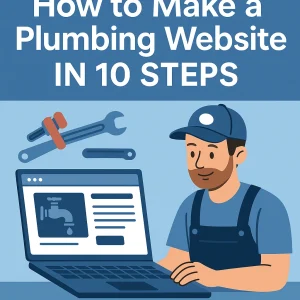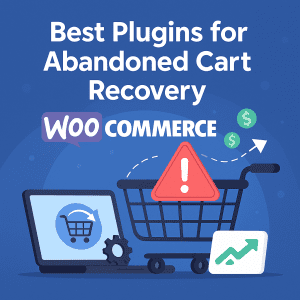![]() So much to be said for simplicity nearly all the time, and then with websites there’s the way that DIY is the way to go if you’re not at all keen to pay a web developer to put together a website for you. Obviously you won’t choose that if you’re making the decisions for a big and well-established business of any sort. But if you’re in business on a significantly smaller scale and it’s not so much about branding as it is providing a quality product or service at a good price then a DIY website is often a good choice. WordPress gives you that option, and what we’ll look at here is Divi vs Elementor as the best WordPress page builder.
So much to be said for simplicity nearly all the time, and then with websites there’s the way that DIY is the way to go if you’re not at all keen to pay a web developer to put together a website for you. Obviously you won’t choose that if you’re making the decisions for a big and well-established business of any sort. But if you’re in business on a significantly smaller scale and it’s not so much about branding as it is providing a quality product or service at a good price then a DIY website is often a good choice. WordPress gives you that option, and what we’ll look at here is Divi vs Elementor as the best WordPress page builder.
It’s not even a choice you need to make if all you’re after is the simplest of websites, and good examples of these are ones for recreational sports teams or maybe one where a person is showcasing their music or arts or crafts. You can use WordPress as it comes out of the box to put together the entirety of the site, but for some they’ll want more functionality with how certain pages are assembled. Divi and Elementor features both line up with being able to do this, and what we’ll aim to do is determine if one is better than the other for doing that.
As you’d expect there are Elementor vs Divi pros and cons and taking all of them into account and weighing them against each other is how we’ll come to our conclusion. There’s more than a few people who will be looking for the best drag and drop page builder, and you can be sure that at any given time there’s at least a handful of people out there who are getting set to use WordPress to build a website for the first time. That means that a topic like this can always be relevant, so without going on any further let’s start our Divi vs Elementor comparison.
CMS Considerations
A content management system (CMS) is usually a must for the creation of websites, and WordPress has been the leader of the pack there for years now. Anyone hoping to create a WordPress site that looks good and functions as intended will do well if they know how to use the right tools. And that means being in the know with the array of them, plus all the plugins and builder available for making a WordPress. But not all of them work, and of the ones that do some are decidedly better than others.
We will be evaluating two tried-and-tested themes here, Divi vs Elementor. Both page builder are good enough, and it needs to be said that both will get the job done. Which is important to be assured of, because a page builder is the way to go when it comes to building a dynamic site with ease. So choosing a WordPress page builder becomes the matter, and here’s our comparison.
Divi Builder
We can start by saying that Divi, like the Pro version of Elementor, should be seen as more than a page builder. It can serve as a theme and a theme builder, making it a multi-purpose resource for anyone looking to create dynamic websites. It is also one of the most popular WordPress themes in the world. Let’s provide definitions for a few important terms here as they relate to using these themes.
A page builder is a tool for creating attractive website layouts and doing so without the need for coding. A theme is a set of files that determines the look and layout of a WordPress site. When using a theme builder you have a tool that lets you create your own WordPress theme without having to write any code. So to cover this all together briefly a page builder is used to create individual layouts, while a theme governs the overall look of the site. A theme builder offers in-depth customization of the WordPress theme as a whole.
Our focus here is going to be on the two page builders though, and not so much on WordPress site builders. With Divi vs Elementor performance it tends to be a fairly even comparison, so if there’s other differentiators then that is where we need to focus with a Divi page builder review.
We first noted that Divi has an impressively intuitive interface, and with it you can create highly dynamic pages. In addition to its extensive library of templates to help you design these pages, it's also easy to use and has the type of drag-and-drop functionality that a lot of users will be looking for. The other pros for Divi is that it has an advanced block page customization that is very much conducive to putting together unique sites.
Other advantages for Divi is that the builder’s design options are highly flexible, and mobile compatibility is easy to set up. Divi’s front-end mode also gets high marks with the way you can see changes you’ve made in real time. Plus the integrated page templates that are available in the builder’s library make it super easy to get started. For anyone who might have more than one WordPress website for business the single license payment is a good arrangement and that factors into our WordPress page builder comparison too.
Rounding out the pros for Divi are very efficient customer support that is available 24/7 via chat and an extensive database of video tutorials.
On the flip side of all of this, Divi is certainly pricey and you’ll have to spend over $250 for the license. This is only a one-time payment, however, and once paid there is lifetime access to build as many sites as you need. Another consideration that may not be so appealing for people looking to build you own website with WordPress is that the learning curve with Divi can be steep, especially for beginners and considering there are so many customization options to potentially work with.
Customer support is only available in English, and as you’d expect nowadays some people are offended by this. There are also reports that Divi-designed sites slow down considerably in instances where there isn’t regular optimization by images and content
Elementor Builder
If there’s one most prominent page builder for WordPress, it is Elementor. Continuing with our Divi vs Elementor comparison, Elementor is renowned for its user-friendly interface and extensive customization options. It tends to be a good fit for both beginners and experts with the way it simplifies website creation and enables users to design responsive, visually appealing sites and not asking too much of them to do that.
Elementor offers an intuitive interface in the same way Divi does, earning the same points in this evaluation of the best WordPress page builder. Go with this page builder and you will also be able to create dynamic sites with supremely usable drag-and-drop functionality. Elementor also measures up with having a variety of tools to tailor sites to your needs.
The pros for Elementor include there being a free version of Elementor that will be sufficient for most people who are aiming to build a basic website. And it is also similar to Divi in that it has a Front-End mode where users are able to preview in real time how the site will appear to site visitors. Another advantage of going with Elementor is that it offers a mobile-specific editing mode where users can identity and adjust the appearance of the site and how it will display on smartphones and tablets.
You will have fewer options than Divi, but that works out to Elementor being a more intuitive choice if you’re not at all savvy with this type of stuff. And in fairness much of what comes additionally with Divi won’t really be required if you are building a basic website and using WordPress site builders for doing that. Another plus is that customer support is available by e-mail and chat 24/7, along with plenty of articles, videos and frequently asked questions that will cover a lot of the most common basic queries users will have.
Moving onto the drawbacks for Elementor, what users find is that they reach the ceiling with the free version of Elementor quite quickly. Accessing many of the advanced features will require users to pay for the much more comprehensive Pro version. That may be a good way to go, but even with the Pro version you are limited with the number of sites you can design. 25 per year for the $199 price. As with Divi, customer support is only available in English and again some people are super offended by that.
Key Features
Continuing with our WordPress page builder comparison, we need to look at the Divi Builder Elementor. It does very well for being intuitive, but there is a steep learning curve due to the complexity and diversity of its options. Alternately, Elementor's interface is intuitive and equally suitable for beginners or more seasoned users. If we factor price into the equation Divi may be better even though there is no free version.
With the 1-time payment for lifetime free access you have more of what you need if you are planning to build your own website and build more than one of them. With Elementor there is that free version a lot of people will be pleased to have, but the tradeoff is that functionality is limited. If it is not meeting your needs with the Elementor features you have then the alternative is to move up to the paid Pro version that will give you a lot more functionality.
The next consideration will be with creative flexibility and Divi page builder reviews go on at length about the flexibility and wide-ranging design options. With this level of advanced customization, you will be entirely equipped with what you need to create a unique site. Elementor also offers great flexibility, with simplified options that will be a fit for both beginners and experienced users.
Divi is not only just a WordPress page builder, it is also a WordPress theme in itself. With it you’re able to design a site from A to Z, without adding an external theme. There's a basic theme designed for Elementor called Hello Elementor and you can choose to start with it or go with a range of free or paid themes.
Performance will always be a consideration too with choosing a WordPress page builder. Sites designed with Divi offer stable performance, but are known to be slower. Faster loading times can be achieved by Optimizing images and content though, although that is always essential for maintaining faster loading times with any type of website. Elementor delivers solid, fast performance and even with the most advanced features.
Adaptive and responsive design features are also going to be a part of what people are looking for with the best drag and drop page builder. Divi offers adaptive design options to ensure your site is responsive across different devices. Elementor matches that here, offering similar features to optimize adaptive design and we like how users can see changes in real time.
The consensus is that they’re pretty much evenly matched with mobile compatibility, real-time site editing, block page customization, and customer support. So accordingly with Divi vs Elementor we don’t necessarily recommend one over the other. What is likely best for anyone is to try the free version of each and see if one is better for you based on what you’re aiming to do with it. Each has its own advantages and disadvantages, even though the two builders are very similar.
We’ll conclude by saying there are other page builders you may want to consider. Gutenberg, Beaver Builder, and Site Origin are also good ones that have much the same levels of workability when it comes to building WordPress pages. But if you have the budget then going with Divi or Elementor is recommended.














